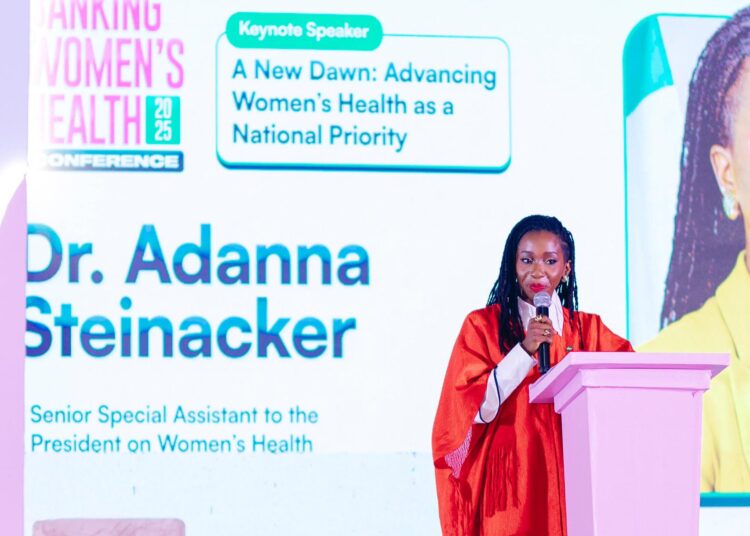The Banking on Women’s Health Conference 2025 has underscored the urgent need for stronger policies to enhance women’s access to healthcare, with stakeholders highlighting the critical impact of women’s health on national productivity.
Held in Abuja, the conference brought together health experts, policymakers, and advocates who called for prioritising women’s well-being despite the daily demands they face. Discussions emphasised that poor women’s health limits individual potential and constrains workforce participation and overall national growth.
The senior special assistant to the President on Women’s Health, Dr. Adanna Steinacker, delivered the keynote address. In it, she stressed the fundamental link between women’s health and national prosperity.
“In a country where women are the backbone of families and communities, we must ensure their health is a national priority. Our office is committed to making this a reality,” Dr. Steinacker declared.
A key highlight of the event was the unveiling of the Banking on Women’s Health Innovation Award, an initiative by Healthtracka, a leading health-tech company, designed to recognise and support groundbreaking health solutions with the potential to transform women’s health outcomes across Nigeria.
Dr. Steinacker further called for increased investment in women’s health, describing it as a healthcare issue and a socioeconomic imperative.
The conference spotlighted critical health challenges affecting women, including polycystic ovary syndrome (PCOS), fibroids, obesity, endometriosis, and contraceptive access—conditions that significantly impact women’s workforce participation and overall national productivity.
“Women’s health is an economic issue. When women are healthy, they contribute more effectively to their families, communities, and the nation’s growth,” noted Dr. Adanna.
Participants also emphasised the importance of integrating women’s health into the broader economic agenda, arguing that when women are empowered to prioritise their health, they are better positioned to care for their families and contribute meaningfully to national development.
Other speakers at the conference echoed this message, calling for collaborative efforts between the government, private sector, and civil society to expand healthcare access for women, particularly in underserved regions.
The event provided a platform for discussions on innovative strategies to improve women’s health outcomes, ranging from maternal and reproductive health education to mental wellness.
With the theme “Revolutionising Women’s Healthcare in Africa,” the conference has set the stage for sustained national dialogue, innovation, and policy advancement centred on women’s health.











